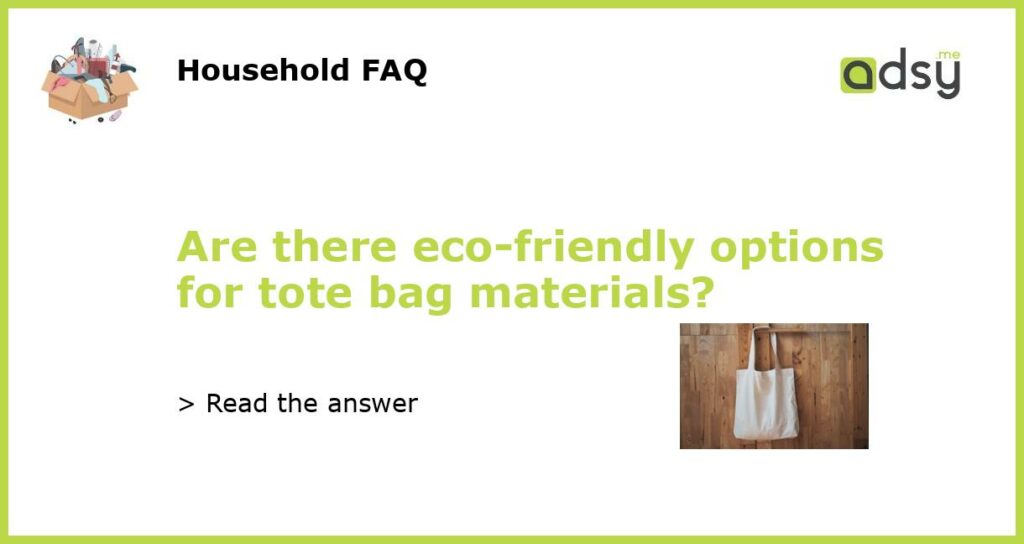Eco-Friendly Options for Tote Bag Materials
Tote bags have become increasingly popular in recent years as a more sustainable alternative to single-use plastic bags. However, not all tote bags are created equal when it comes to their environmental impact. The choice of materials used to make tote bags can have a significant effect on their eco-friendliness. In this article, we explore some of the eco-friendly options for tote bag materials.
Organic Cotton
Organic cotton is one of the most environmentally-friendly materials for tote bags. It is grown without the use of synthetic pesticides, fertilizers, or genetically modified organisms (GMOs). Organic cotton farming promotes healthier soil and water quality, as well as biodiversity. Additionally, organic cotton is biodegradable, meaning it will naturally break down over time, unlike synthetic materials such as polyester.
Recycled Materials
Another eco-friendly option for tote bag materials is using recycled materials. This can include recycled plastic bottles, old clothes, or other textiles. By repurposing and reusing these materials, the demand for new raw materials is reduced, saving energy and reducing waste. Some companies even specialize in creating tote bags made entirely from recycled materials, offering a sustainable alternative to conventional options.
Hemp
Hemp is an incredibly versatile and sustainable material that can be used to make tote bags. It is a fast-growing crop that requires minimal water and no pesticides. Hemp also naturally suppresses weeds, eliminating the need for herbicides. Additionally, hemp fibers are strong and durable, making them ideal for tote bags that need to withstand heavy loads. Like organic cotton, hemp is biodegradable, making it a more sustainable choice compared to synthetic materials.
Jute
Jute is a natural fiber derived from the stem of the jute plant. It is a highly sustainable material that requires minimal water and no chemical fertilizers or pesticides to grow. Jute is known for its strength and durability, making it an excellent choice for tote bags. Additionally, jute fibers are biodegradable, allowing them to decompose naturally at the end of their lifespan. Jute tote bags offer a natural and eco-friendly alternative to traditional synthetic options.
Bamboo
Bamboo is a rapidly renewable resource that can be utilized as a sustainable material for tote bags. It grows much faster than trees and requires fewer resources to thrive. Bamboo is naturally resistant to pests and diseases, reducing the need for chemical interventions. Additionally, bamboo fibers are naturally antimicrobial, making them a hygienic choice for tote bags. Bamboo tote bags can provide an eco-friendly alternative while still offering style and functionality.
In conclusion, there are several eco-friendly options for tote bag materials. Organic cotton, recycled materials, hemp, jute, and bamboo are all sustainable alternatives to conventional materials such as polyester. By choosing tote bags made from these eco-friendly materials, consumers can reduce their environmental impact and contribute to a more sustainable future.






